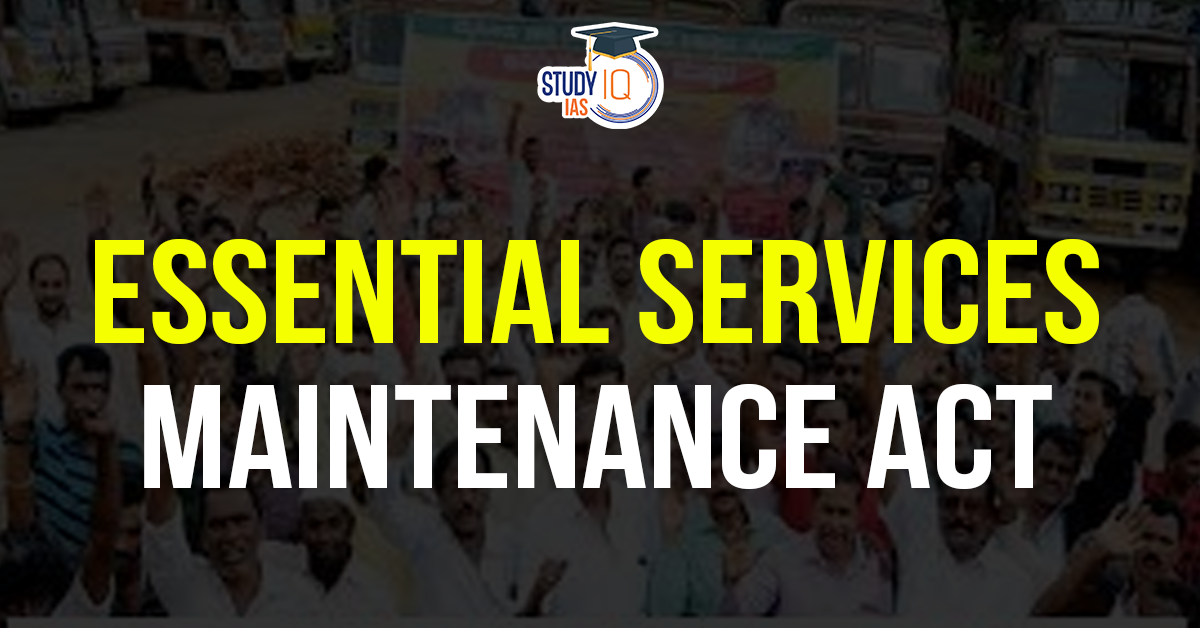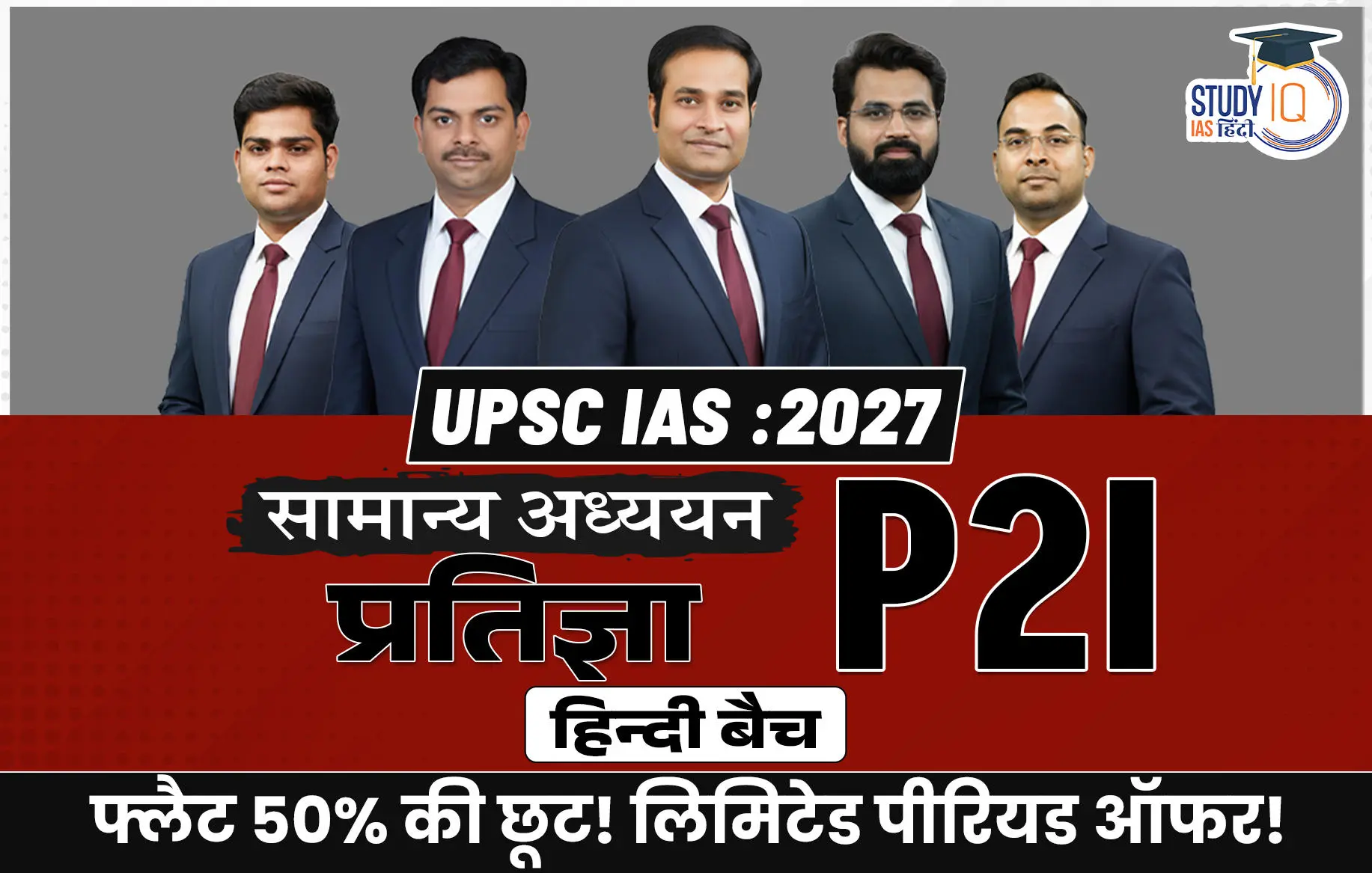Table of Contents
About Essential Services Maintenance Act (ESMA)
- ESMA was enacted by the Parliament of India in 1968.
- Its main objective is to maintain the smooth movement of those things which are essential for the normal life of the common citizens.
- It can be imposed for a maximum period of 6 months, but the Central Government can extend it for any period not exceeding 6 months if it is satisfied that in the public interest it is necessary to do so.
- It can be invoked by the central government in case of a national-scale disruption, such as on the railways.
- State governments also have their own state specific ESMA which they can invoke in case of disruptions that only affect a state or states.
- Before enforcing, the government must alert the employees through media or newspaper notifications.
Services that fall under ESMA
- Services related to public conservation, sanitation, water supply, hospitals and national defence.
- Any establishment involved in producing, delivering or distributing petroleum, coal, electricity, steel or fertiliser.
- It also applies to communication and transportation services and any government initiative relating to the acquisition and distribution of food grains.
Key Features of ESMA
- Purpose:
- To regulate strikes and lockouts in services deemed essential to the community.
- To ensure the uninterrupted delivery of critical services.
- Scope of the Act:
- The Act applies to a variety of essential services, such as:
- Transportation (railways, buses, air travel).
- Water supply.
- Energy (electricity generation and distribution).
- Public health (hospitals, sanitation).
- Communication (postal, telecommunications).
- The government can declare any other service as essential if necessary.
- The Act applies to a variety of essential services, such as:
- Prohibition of Strikes:
- ESMA prohibits strikes by employees in essential services during its operation.
- Individuals or groups defying the Act can face penalties, including fines or imprisonment.
- Powers of the Government:
- The central or state government can invoke ESMA for a specified duration, typically up to six months, but it can be extended if required.
- The Act allows the government to take action against individuals or groups engaging in or instigating strikes.
- Penalties:
- Participants in illegal strikes may face:
- Imprisonment: Up to 6 months.
- Fines: Up to ₹1,000, or both.
- Participants in illegal strikes may face:


 Legal Issues in the Definition of Rape �...
Legal Issues in the Definition of Rape �...
 A Tribal Hamlet’s tryst with AI: Limbu...
A Tribal Hamlet’s tryst with AI: Limbu...
 US Supreme Court Rejects Trump Tariffs �...
US Supreme Court Rejects Trump Tariffs �...




















